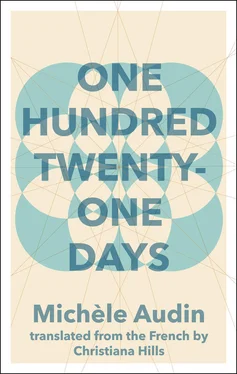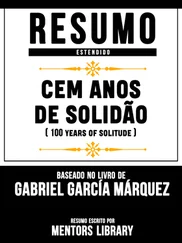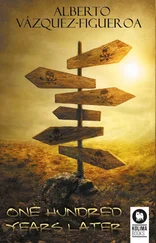The physicist Émile Nadault (1870–1947) had been a public supporter of the Popular Front. He was arrested by the Germans in October 1940, then released. At the time of Kürz’s visit to Paris, he had been put on house arrest in Chartres.
Centre national de la recherche scientifique (French National Center for Scientific Research) (Trans.)
They do have a bit more difficulty here with the so-called international institutions. For example, Morstauf told me about the International Time Bureau at the Paris Observatory, where they haven’t been able to expel undesirables, and he mentioned the name of a Jewish astronomer who is still peacefully presiding there. 16
This is probably Maurice Fried (1895–1943). He was arrested in July 1942 and deported to Auschwitz where he disappeared in December 1943.
I proposed we go to the library of the Henri Poincaré Institute, on Rue Pierre-Curie, but as soon as we got there, someone at the door told us that the librarian had just left and we couldn’t go in. This probably wasn’t true. It seems to me this kind of thing needs to be made more rational.
After leaving Morstauf, I walked down Rue Saint-Jacques, with the length of the Lycée Louis-le-Grand on my right and the Sorbonne on my left. I bought an unpaired volume from the complete works of Lagrange at a used bookstore, then I lost myself in a sort of labyrinth of little streets; one of them happened to be named after Lagrange, and another after Dante, with no street running parallel or perpendicular to any of the others. This, too, could be made more rational. But that is our role here, and I have no doubt that we will succeed.
The lemma I came up with seems to work.
June 3, 1942
Today, Morstauf organized a meeting in a café on Rue Claude-Bernard. He teaches everywhere: at the Sorbonne, the École Polytechnique, the École Normale Supérieure. 17He was supposed to bring students from the École Normale Supérieure so that we could convince them to work for us, but he arrived on his own. “The students are coming,” he told me.
In fact, Morstauf held several teaching positions concurrently. This practice has become rare, but was still rather common at the time. For example, during the 1930s, Paul de Saint-Bonnet had concurrent positions at the Sorbonne, the École Normale Supérieure, the École Centrale, and the École des Mines.
He launched into one of his usual lengthy monologues, mixed with his recollections from the ceremony for my university’s two hundred fiftieth anniversary, which he attended five years ago, 18his childhood memories, and his political opinions. He also mentioned, as he did three years ago in the Jardin des Tuileries, the cemetery of N., his love of peace, Germany and its power — because France’s future rests in that power — the memory of all the colleagues he had met there, and even a dog (Tiedemann’s, if I understood correctly) that had reminded him of his childhood in the heart of Africa. He told me about a river, the Saloum, and its delta, and of course from there he arrived at the war, the great war, along with the military cemetery where his brother is buried, in Brittany, I believe, and of course his injury, which he refers to as a second birth. Then he told me about Saint-Bonnet, “his master” who had given him a lot of support ever since the time his injury, but who died last winter, at a very old age. 19
The University of N. celebrated this anniversary in 1937 with grand Nazi pomp. Morstauf was among the foreigners invited to the ceremony.
On the mathematician Paul de Saint-Bonnet, see notes 17 and 32.
For all that, the students never came; Morstauf flew into a terrible rage against the school’s assistant director, a physicist and enemy of Germany, who he claims pits the students against us. 20His fits of rage are well known among mathematicians. As for me, I lost my whole day.
Student testimonials from the period mention Morstauf’s collaborationist proselytism during his courses at the École Normale Supérieure.
In the evening, my friend from the Lutetia took me to a brothel near the Palais-Royal. There’s another advantage to the war! The establishment is reserved for officers. The girls are clean and friendly, and they understand German well enough to do what’s asked of them. They had a piano there; one of the girls was plinking out Für Elise on it. At first I thought of taking her place, but I felt a Beethoven sonata would be poorly suited to the locale, so I didn’t do anything. 21
Heinrich Kürz was a professional-grade pianist.
June 4, 1942
Morstauf again today. He took me to the German Institute, on Rue Saint-Dominique near Les Invalides, one of the nicer walks. On the way, he tried to say a few words to me in German, but he’s made hardly any progress since my last trip in December 1940. Still, he managed to say:
Wie weh wird mir
Wie brennt meine alte Wunde!
I pretended not to recognize that it was a quotation, especially because it came from a Jewish writer. 22At the Institute, I went over to greet the director, Doktor Epting. There were lots of people there, mainly lots of French people: writers, musicians, and actors; pretty women, starlets, and songstresses. The discussion, an animated one, was about a very interesting trip the actors took to Berlin a few months ago, 23then about the Arno Breker exposition at the Orangerie. “Have you read Cocteau’s article?” someone asked. 24“Ah, those Aryan athletes are so handsome,” a woman said. “But that’s the true German spirit!” a man exclaimed. Morstauf introduced him to me; he’s a chemist by the name of Ollier, a handsome man with a long, serious face. 25There was also an inventor, Georges C., who thinks he’s the greatest living French savant (Morstauf warned me we would meet him, and said Georges C. is very sensitive on this point). Georges C. recognized me despite my uniform; he said he remembered my trip to the Academy of Sciences right before the war. Morstauf congratulated him on a speech he made that was broadcast on Radio Paris a few days ago.
The writer and poet of the verses quoted by Morstauf is Heinrich Heine (1797–1856), whose books were burned in the public squares of German cities in 1933. The two verses can be translated literally as “How I suffer / How my old injury burns me.”
A group of French actors were invited to Berlin in March 1942. See also note 35.
A grand exhibition was showing the works of Arno Breker (1900–1991), the official sculptor of the Third Reich, at the Musée de l’Orangerie in the Jardin des Tuileries. Kürz doesn’t seem to have gone to it during this trip. The article “Salut à Breker” (Salute to Breker), by the writer Jean Cocteau, had appeared in the weekly collaborationist magazine Comœdia on May 23. Like Morstauf, Ollier was a member of the Groupe Collaboration.
“You knew,” Morstauf said to him, “how to touch the hearts of the French people by communicating the depth of your attachment to Hitler.”
“Ah! That’s because I’m not a convert,” he answered.
To tell the truth, this man and his intensity frightened me a little. 26“Your article on French science was very good,” Morstauf said to Ollier. 27
The fanaticism of the scientist here called Georges C. (1870–1960) would lead him, a few weeks later, to “give his whole self to Hitler” by biting a cyanide capsule in public, which he survived.
This is probably in reference to an article titled “Le professeur Ollier nous dit” (“Professor Ollier Tells Us”) which appeared in the evening edition of Les Nouveaux Temps on May 29, 1942.
Morstauf’s relations with Georges C. and Ollier seemed slightly tense. They’re probably all jealous of each other, trying to see whose love of Germany will bring the most fame or more materials. He introduced me to another man whose name I didn’t catch, and who congratulated me on our conquering force, capable of assuring a race’s hegemony. “Ah!” interrupted Morstauf, “what we want is a France where order, work, and hierarchy prevail.”
Читать дальше












